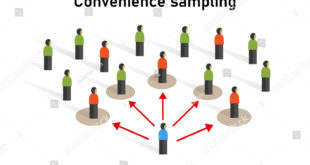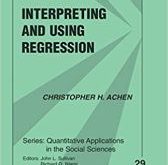IV regression and the difficult art of mimicking randomization We need relevance and validity. How realistic is validity, anyway? We ideally want our instrument to behave just like randomization in an experiment. But in the real world, how likely is that to actually happen? Or, if it’s an IV that requires control variables to be valid, how confident can we be that the controls really do everything we need them to? In the long-ago times, researchers were...
Read More »Problems with Propensity Score Matching (wonkish)
Problems with Propensity Score Matching (wonkish) .[embedded content]
Read More »Statistical inference and sampling assumptions
Statistical inference and sampling assumptions Real probability samples have two great benefits: (i) they allow unbiased extrapolation from the sample; (ii) with data internal to the sample, it is possible to estimate how much results are likely to change if another sample is taken. These benefits, of course, have a price: drawing probability samples is hard work. An investigator who assumes that a convenience sample is like a random sample seeks to obtain...
Read More »Fisher’s exact test (student stuff)
Fisher’s exact test (student stuff) .[embedded content]
Read More »Significance testing and the real tasks of social science
Significance testing and the real tasks of social science After having mastered all the technicalities of regression analysis and econometrics, students often feel as though they are masters of the universe. I usually cool them down with the required reading of Christopher Achen’s modern classic Interpreting and Using Regression. It usually gets them back on track again, and they understand that no increase in methodological sophistication … alter the...
Read More »Death penalties and homicides — a D-I-D analysis
Death penalties and homicides — a D-I-D analysis .[embedded content]
Read More »John Snow and the birth of causal inference
John Snow and the birth of causal inference [embedded content] If anything, Snow’s path-breaking research underlines how important it is not to equate science with statistical calculation. All science entails human judgment, and using statistical models doesn’t relieve us of that necessity. Working with misspecified models, the scientific value of statistics is actually zero — even though you’re making valid statistical inferences! Statistical models are no...
Read More »Multilevel modeling (student stuff)
Multilevel modeling (student stuff) .[embedded content]
Read More »Model validation and significance testing
Model validation and significance testing In its standard form, a significance test is not the kind of ‘severe test’ that we are looking for in our search for being able to confirm or disconfirm empirical scientific hypotheses. This is problematic for many reasons, one being that there is a strong tendency to accept the null hypothesis since they can’t be rejected at the standard 5% significance level. In their standard form, significance tests bias against...
Read More »Machine learning cross-validation (student stuff)
Machine learning cross-validation (student stuff) .[embedded content]
Read More » Heterodox
Heterodox




